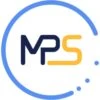Have you paid attention to how much the advent of the digital era changed our language? User interface, URL, plugin, software, outsourcing – these words have stopped being terms known to a narrow circle of high-fi experts and turned into bywords familiar to average gadget owners as well. Alongside ushering new vocabulary, technical progress in the IT industry has changed the meaning of many existing words. In the mind of most people of the second millennium, tool is not a hammer anymore, but rather Angular or React, platform has nothing to do with railroads but may be related to iOS, and cloud shouldn’t be looked for in the sky above our head.
Something similar is happening to conventional collocations. When a contemporary person hears the word native, there is a slim chance that s/he will combine it with language, Americans, or (most unlikely) heath. Native can be only an app. Smartphone users of today can’t do without these computer programs that serve as a master key that, given the stable web connection, opens a whole world of services and information accessible via a mobile device.
However flawless native apps might have seemed at the dawn of the mobile age, later developments served another proof to the statement that nothing is perfect.https://multi-programming.com/for-clients/pwa-testing-essential-guidelines-to-follow


